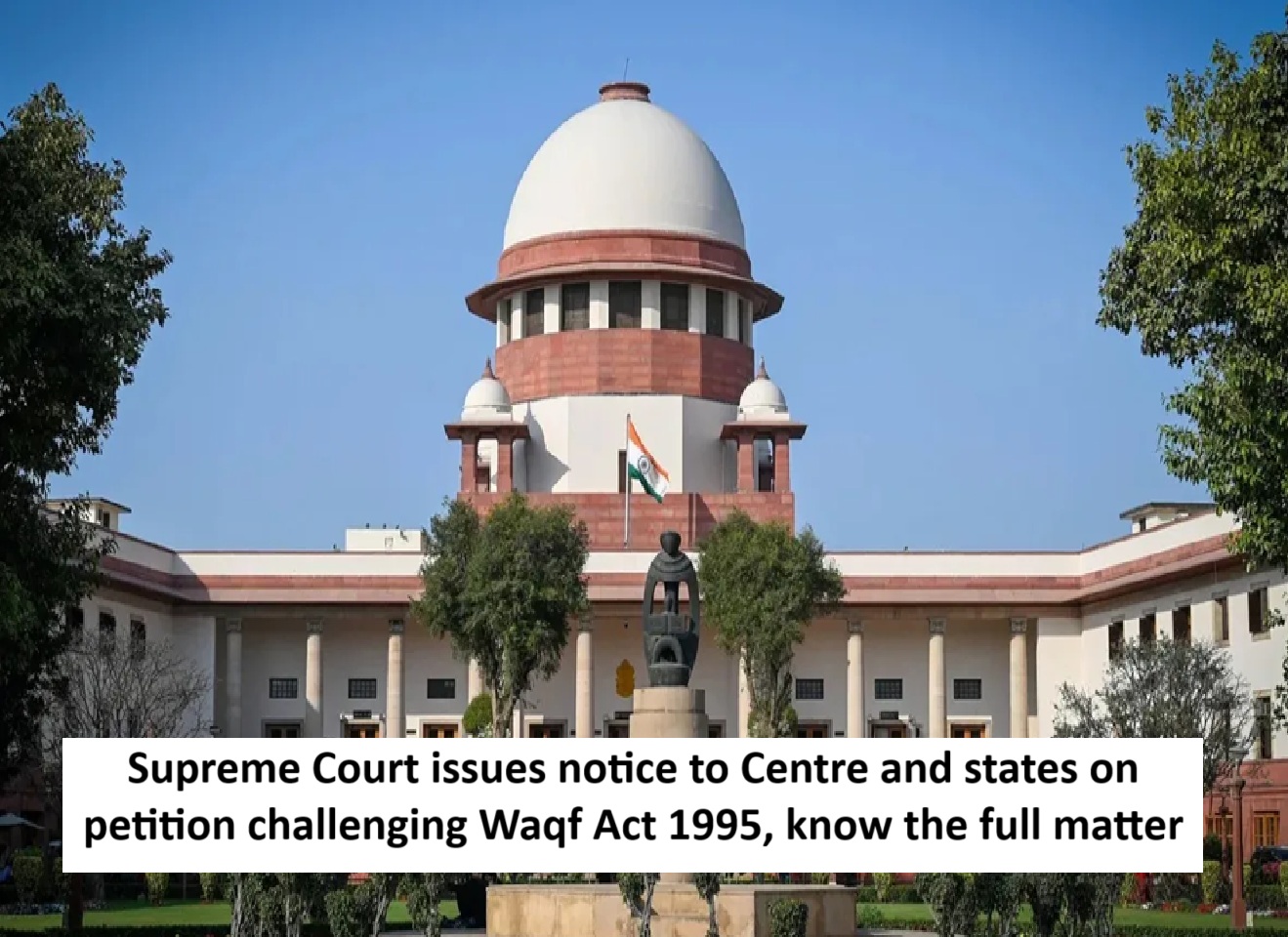
News Topical, Digital Desk : The Supreme Court on Tuesday issued notice to the Central and State governments on a petition challenging the Waqf Act, 1995. A bench of Chief Justice of India BR Gavai and Justice AG Masih issued notice on the petition filed by Delhi resident Nikhil Upadhyay. It was attached with a similar petition filed by advocate Hari Shankar Jain and another person.
Why is the challenge being given now after so many years- Court
Hearing writ petitions challenging the recent amendments made in the Wakf Act, a bench comprising Chief Justice of India BR Gavai and Justice Masih had earlier asked as to why the 1995 Act was being challenged now after so many years.
The lawyer said- I was asked to go to the High Court
Advocate Vishnu Shankar Jain, appearing for petitioner Hari Shankar Jain, tried to explain that the petitioners had challenged the 1995 Act in the Supreme Court long ago. They were asked to approach the High Court, but the bench did not agree.
The bench of former CJI Sanjiv Khanna had heard this case
On Tuesday too, the Supreme Court bench asked advocate Ashwini Upadhyay as to why it should now consider the petitions challenging the 1995 Act. To this, advocate Upadhyay said that the bench of former CJI Sanjiv Khanna, Justice Sanjay Kumar and KV Vishwanathan, which had heard the Waqf (Amendment) 2025 cases before the CJI Gavai-led bench took over after the retirement of former CJI Khanna, had already agreed to hear the cases challenging the 1995 Act separately and had allowed those challenging the 2025 amendments to file their reply on it.
The court did not allow hearing on the petition
Solicitor General Aishwarya Bhati, appearing for the Centre, on Tuesday said the court has not allowed the petition challenging the 1995 Act to be heard along with the petitions challenging the 2025 amendment. Bhati, however, said there was no objection if Upadhyay's petition was clubbed with another petition filed by Jain challenging the 1995 Act.
--Advertisement--

 Share
Share



